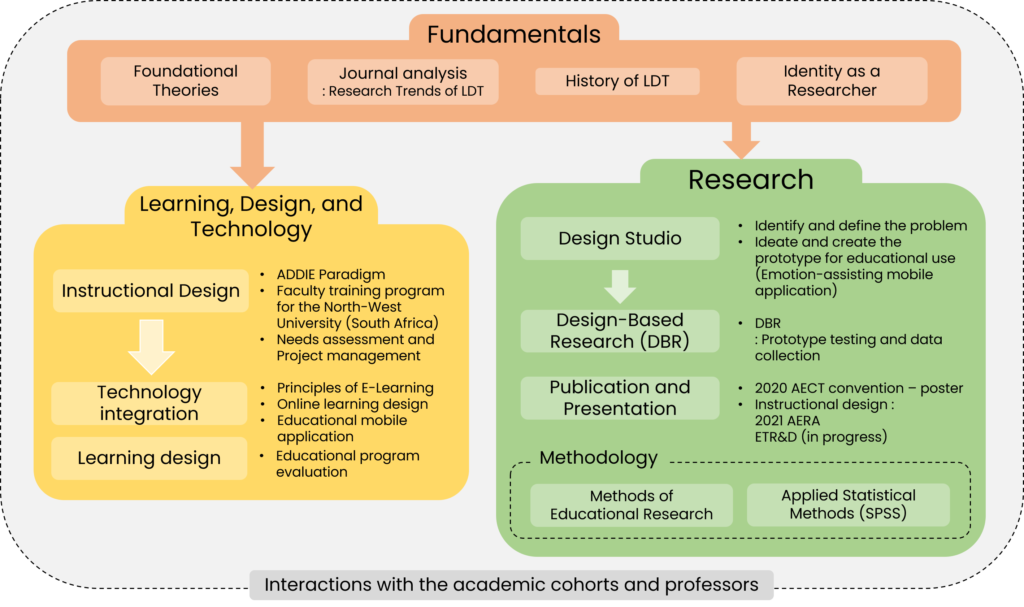Professional Development
M.Ed. in Learning, Design, and Technology

Overview
I appreciate the invaluable experiences and support I have received from the professors and my peers at the Learning, Design, and Technology (LDT) program at UGA. Our interactions have helped me to shape my identity as a researcher and educator, and I truly enjoyed engaging in scholarly experiences both within and outside the program.
My primary motive to study LDT was to explore and deploy the optimal ways to improve learning and teaching through technology integration. My initial step as a Master’s student at UGA was to narrow down and organize my research interests. When I was trying to pinpoint the core topic that might cohesively unite all of my scattered ideas, the Design Studio course (EDIT6190) helped me identify the problem that I resonated with the most. Using the ‘Empathize’ and ‘Define’ phases of the design thinking process, I started to examine the problem of students’ mental health issues more in-depth and began ideating an emotion-assisting mobile application. The ‘Foundation of LDT’ course and ‘Doctoral Seminar’ introduced me to the trends of the LDT field, which allowed me to explore the primary topics in this area. Thanks to the course, ‘Emerging Approaches in Teaching, Learning, and Technology,’ I gained a solid theoretical understanding of incorporating technology into the educational domain as well as in educational psychology theories. I had a great chance to bring this knowledge into practice through designing a companion technology-integrated learning program for South-African parents and children who want to learn English as a second language.
In addition, I participated in a research study with amazing support from Dr. Stefaniak. We analyzed current trends in instructional design expertise through three constructs: characteristics of expert instructional designers, discrepancies between novices and experts, and instructional strategies used to train novice instructional designers. I also had so much fun engaging in Design-Based Research (DBR) for educational app design with Dr. Kopcha. Through this formative work, I learned and practiced the research process of DBR, along with the data collection and analysis processes. In addition to several courses and research experiences, I took part in several interesting projects, including online faculty training program design for the North-West University and the program evaluation for the Clark-County Mentoring Program (CCMP). Looking back, this journey has not been easy, but it was definitely very rewarding for me to grow as a researcher. On top of this, I am glad that I managed to find the research topic that I will dedicate to studying in the next 3-4 years of my PhD program, which is an affective domain of learning in the technology-integrated classroom.